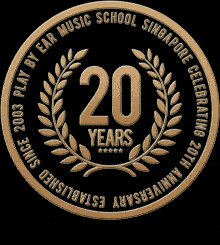In today’s context, it becomes a widely accepted fact that music examinations are intended for the standard purpose of classical training and not for contemporary (pop). In any case, even though it is often associated with examinations, classical music is not the same as the examinations that often accompany them. Basically, you can learn how to play classical music without taking any examinations. It is not a necessary prerequisite to the genre.
There is nothing wrong with learning Classical music. All musicians have a great deal of respect for the genre because they consider it to be the holy grail of music. The point is, it is not the end phase but the journey you begin that can be the biggest challenge and it comes down to the way people are learning classical music. Again, we mean no sleight to classical music itself. The debate is not why your child should learn music, but whether your child should be required to undergo an examination and if it can be an option to avoid, should you want your child to learn music, whether classical or pop.
We will never completely eliminate all examinations because, in many industries, there is no viable alternative. For example, if you want to be an engineer or architect, you’ll need to pass the proper exams to get certified to start constructing buildings. After all, our lives are in their hands. This same principle applies to many other significant professions such as, pilots, physicists, dentists, surveyors and almost every other occupation you can think of.
Moving back to the subject of music examinations, here are statistics that were gathered over the past 15 years. These are through our students’ database and includes a public survey that was made on the 20th December 2018, of 50 individuals between the ages of 21-50 who learned classical music and went through to completing classical examinations.
Everyone listens to music in some capacity. No one detests music. The fact still remains that the majority of people with desired objectives to learn music, these wishes do not match the results in reality. Imagine that your child decides that he or she would like to learn to play music. What is your real and honest objective? Here are the common ones.

